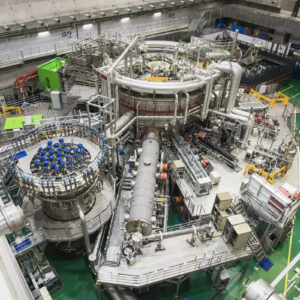Polish refiner Orlen (PKN.WA) and Norway’s Equinor (EQNR.OL) signed on Monday a memorandum of understanding (MoU) on the development of carbon capture and storage (CCS) projects. The documents were signed by Irene Rummelhoff – Executive Vice President at Equinor, and Wieslaw Prugar, Orlen management board member in charge of upstream. Under the memorandum, Orlen and Equinor will...
Articles from Around the Web
Low-Energy Fridays: Should independent regulators be subject to the White House?
President Donald J. Trump recently issued a new executive order (EO) that will require “independent agencies” to submit their rulemaking to the Office of Management and Budget (OMB) for review. Interestingly (but unsurprisingly), this led to a deluge of news articles and quotes from opponents of the administration decrying the move as a power grab and part of an anti-regulatory agenda....
PJM board approves $6.7B transmission expansion plan
The PJM Interconnection board approved $5.9 billion in new transmission projects to bolster reliability across the grid operator’s footprint, PJM said Wednesday. That, combined with changes to the scope and cost of existing projects, mean PJM’s latest Regional Transmission Expansion Plan is set to cost $6.7 billion, according to the grid operator for 13 mid-Atlantic and Midwestern states...
America May Not Need a Massive Energy Build-Out to Power the AI Revolution
Amid surging demand for data centers to train and use cutting-edge artificial intelligence (AI) models, there is a consensus that an expensive build-out of America’s electric power system is unavoidable. President Trump declared a national energy emergency on the first day of his administration and has pledged to fast-track new power plants to fuel the data...
House votes to overturn rule implementing methane fee
The House on Wednesday voted to overturn a Biden-era rule implementing a program that charges oil and gas companies for excess methane emissions. The vote was 220-206-1. Democratic Reps. Henry Cuellar (Texas), Jared Golden (Maine), Vicente Gonzalez (Texas), Adam Gray (Calif.), Kristen McDonald Rivet (Mich.) and Marie Gluesenkamp Perez (Wash.) voted with nearly every Republican in favor of the measure. Rep. Brian Fitzpatrick (Pa.) was...
China ‘green’ jet fuel plants push back start-up amid lack of policy
Several Chinese builders of sustainable aviation fuel (SAF) plants are postponing start up as a lack of government policy guidance restrains them from marketing the fuel domestically or exporting it. Reuters reported last May that companies were investing more than $1 billion to build China’s first plants to turn waste cooking oil into aviation fuel for...
King coal to stay top in India despite big clean power pipeline
India has the second-largest clean power capacity development pipeline globally after China, with nearly 56,000 megawatts of new renewables, hydro and nuclear capacity under construction. Clean energy sources account for two-thirds of the all the new power capacity under development in India, according to Global Energy Monitor (GEM) data, and will result in a 35%...
MIT’s Climate & Energy Ventures: A Pivotal Player in Clean Energy Innovation
In the world of energy entrepreneurship, MIT’s course 15.366, better known as MIT Climate & Energy Ventures, is making headlines as a major force in clean energy commercialization.
Wine Enthusiasts Poised to Adapt to Changing Climates
Changing climate doesn’t mean the same thing to everyone everywhere. To some, warming will mean that already hot places will become even more temperature-challenged. To others, it might actually create new opportunities for things like growing food and new crops.
EPA to make higher-ethanol gas available year round beginning in April
The Environmental Protection Agency (EPA) will proceed with Biden-era plans to allow the year-round sale of higher-ethanol E15 fuel, a longtime ask of midwestern lawmakers and the biofuels industry. EPA Administrator Lee Zeldin said the agency would maintain the agreed-upon date of April 28 to make the fuel available in eight states. The governors of...









